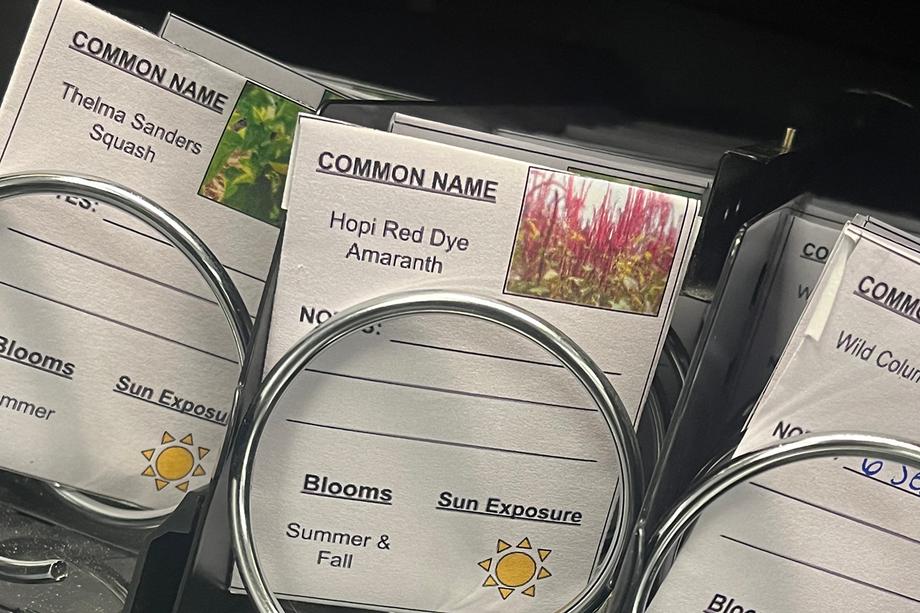Planting a seed
June 11, 2024
The free vending machine on the first floor of the Shapiro Library, known as the Design-O-Matic, sprouted some new offerings this spring: seed packets, imprinted with a QR code link to planting and growing information. The free packets are just the start of a fledgling program that its organizers hope will grow into a fully functional and sustainable seed library that spans all U-M campuses.
“Seed libraries really are a space where climate resilience can happen, where community engagement can happen, and where institutions can give back to their local communities through education and sharing,” said Caylen Cole-Hazel, who works in the library's circulation and access services and is coordinating the project along with students and other library staff.
The seed library began with an initial offering of about 200 packets of native Michigan seeds and various vegetable seeds. Within a few weeks, about half of the seeds were gone, said Krystel Anderson, a graduate student in the School of Information and Library Engagement Fellow working on the project.
“We're analyzing to determine what was popular, and also to figure out how to provide more education around native plants and pollinators,” Anderson said.
For now, the seeds are coming from commercial providers. But a partnership with the Campus Farm and the Matthaei Botanical Gardens will incorporate seed harvesting of heirloom and open pollinated plants into their curriculum. Those harvested seeds will make their way to the Design-O-Matic, furthering both the community engagement and sustainability goals of the project. The seed library is also partnering with the East Quad garden to offer a limited number of garden plots to members of the community who have limited access to arable land. Here, students, faculty, staff, and the community will share knowledge and experience. The seed library is expected to be a partner in this urban garden setting and will contribute to generating informal learning channels and creative collaboration among the campus community.
Plans are also underway to integrate the project into coursework. Cole-Hazel and others working to bring the seed library to fruition are bringing partners on board in Ann Arbor, Dearborn, and Flint, seeking a broad collaboration to make the program more meaningful and allow for the larger community to avail itself of the resources.
“It used to be true that local communities harvested and shared seeds locally, naturally creating and supporting regional varieties. About 100 years ago that became much less popular with the progression of industrialization. So there really was a dwindling variety of seeds and a decline in community gardening," said Cole-Hazel.
“The University of Michigan is rather unique in that we can leverage a vast network of connections across disciplines to create a seed library that serves as a model for fostering community-engaged learning and positive sustainability impacts in education, information, and our local connections to each other through the land that we live with," Cole-Hazel added.
by Alan Piñon

Seed packets in the Design-O-Matic vending machine.